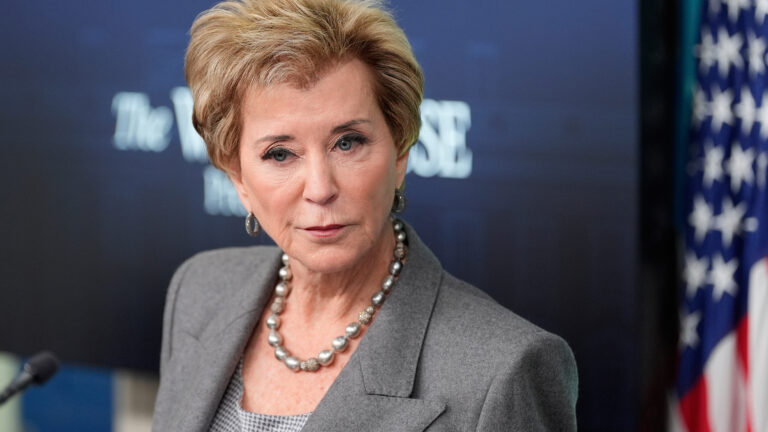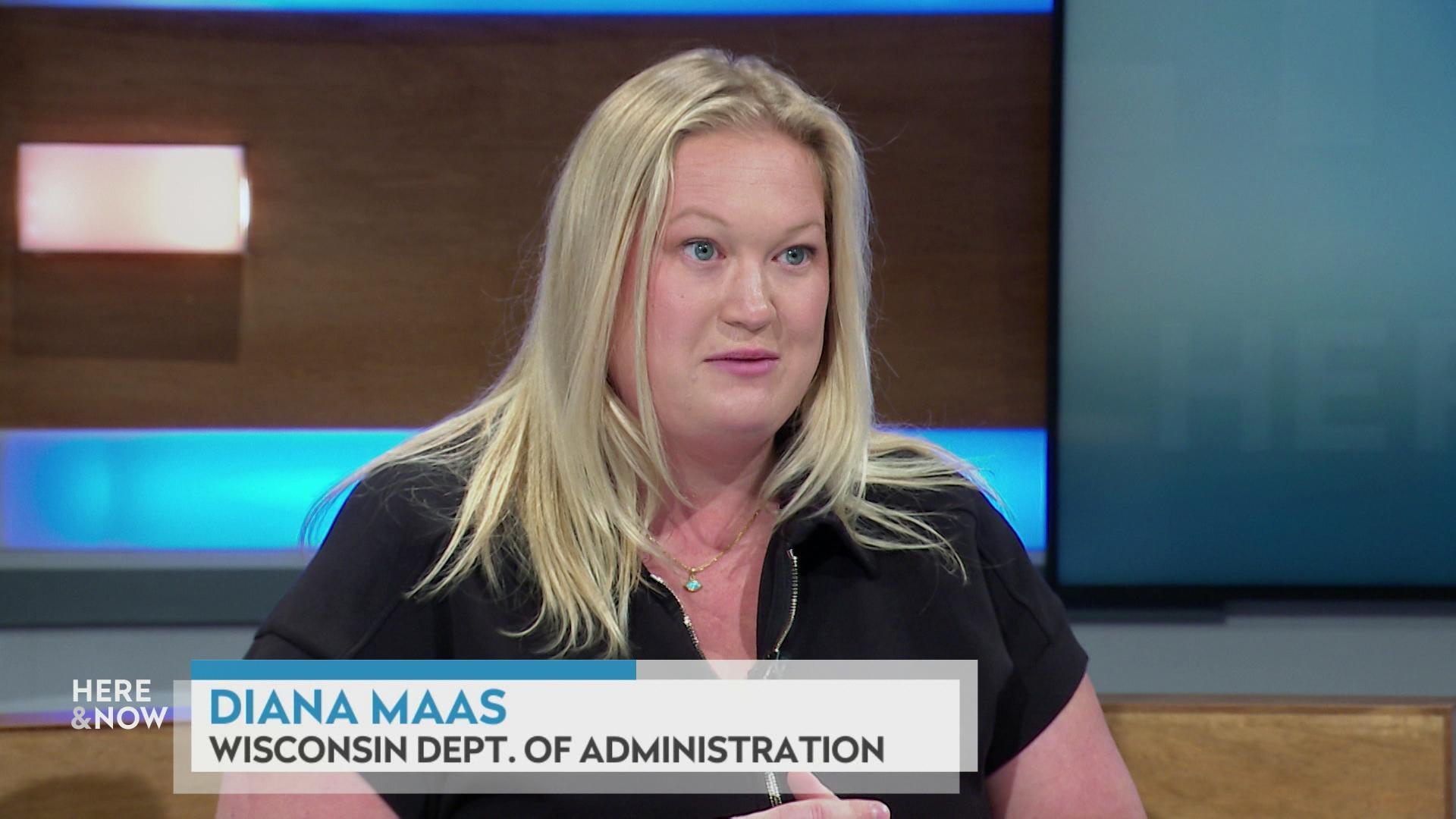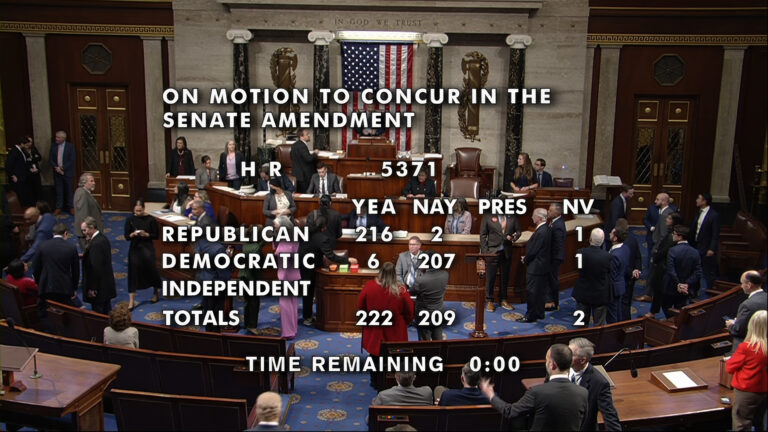Sen. Kelda Roys on priorities for Wisconsin's 2025 budget
State Sen. Kelda Roys, D-Madison, a member of the Legislature's Joint Committee on Finance, discusses work on the 2025-27 budget by Republican lawmakers and Democratic positioning in the process.
By Frederica Freyberg | Here & Now
May 16, 2025
VIDEO TRANSCRIPT
Frederica Freyberg:
Senator, thanks very much for joining us.
State Sen. Kelda Roys:
Great to be with you.
Frederica Freyberg:
So we know that Congress is poised to cut Medicaid and FoodShare. Is it your expectation that the state will have to backfill any kind of those cuts?
State Sen. Kelda Roys:
I think we need to absolutely be prepared to do whatever we can to make sure that families can survive the economic chaos and devastating cuts that are coming out of Washington.
Frederica Freyberg:
I know that the governor had put, I believe, $500 million in the budget in case of that kind of thing. Did that remain when the Republican Joint Finance Committee members kind of pulled things out?
State Sen. Kelda Roys:
You know, I think that the Republicans have basically just been plugging their ears and trying to pretend that it's not happening. What we do know is that almost a third of the state budget is money that comes from the federal government, so there is no way that we can be fully prepared for whatever cuts come down. And certainly the scale of the cuts are gonna be devastating to every Wisconsin family, whether it's nutrition support, FoodShare, educational funding, transportation, public safety, and of course health care.
Frederica Freyberg:
Your GOP counterparts say a keen priority of theirs is what they call tax reform, and they mention the middle class and the elderly. Do you expect compromise around tax cuts in the state budget?
State Sen. Kelda Roys:
You know, we've had a mantra for decades of cutting taxes. I think my Republican colleagues talk a good game about the middle class, but when they actually show us their work, their tax proposals are always skewed toward the very, very wealthiest among us in big business. At a time when people are really going to be struggling — struggling with higher costs, so things like groceries, housing, child care, prescription drugs — we cannot be considering more tax cuts for the wealthy. That has gotten us nowhere. Democrats have proposed reasonable tax relief that is targeted towards the middle class, the working class, those that are striving to get there. Republicans have kind of thrown that back in our face and said, "No, we want yet more giveaways for the folks that are already doing fine."
Frederica Freyberg:
And so you don't believe that there's room for compromise around that?
State Sen. Kelda Roys:
You know, my hope is that there would be, but I just haven't seen a lot of evidence of that. I mean, I think the compromise position would be what Democrats have continually proposed, which is let's scale that tax relief and tax reform to the people who actually need it rather than just continuing to double down on giving more money away to the wealthiest as our schools, our universities, and our health care infrastructure are all struggling for funds.
Frederica Freyberg:
What are Democratic members' priorities?
State Sen. Kelda Roys:
Well, I would say we want to make sure that we are addressing the high costs of living for everyday Wisconsin families, things like child care, making sure kids have great funded public education and healthy school meals at schools, that we're funding opportunities for advancement so that everyone can thrive, our universities, our technical colleges. These are the things that make Wisconsin a good place to live, and we have to be prepared to fund those things. That's also what we heard as we traveled around the state and listened to people's public input. The number one and two issues that people cared about were K-12 public school funding and child care. We haven't had budgets that have met the moment, and now it is past time for our kids to get what they need.
Frederica Freyberg:
We know that the governor's budget included $450 million to continue the Child Care Counts child care program, but that was one of the some 600 provisions pulled out by Republican members of the budget-writing committee. What happens in June when the federal subsidy for that goes away if the Republican majority budget writers don't do something around that?
State Sen. Kelda Roys:
Well, we've been in a child care crisis for a long time in this country, even before COVID. But Child Care Counts stopped the losses, it stopped the closures because it put more money in classrooms and teachers. This is really a supply problem. There aren't enough child care slots to go around in many places. There are two, three, four, even more kids that need a slot for every one that's available because teachers can't afford to stay in early childhood. They can make more at a fast food restaurant or at a gas station starting wage than they can with a bachelor's degree in early childhood. And it's because parents can't afford to pay more. So, this is where we do need the state to step in, as we did with Child Care Counts, and help close that gap so that the most talented and dedicated early childhood educators can practice the profession that they love and that our kids get what they need at a price that parents can afford.
Frederica Freyberg:
Because what happens if we don't contribute toward that?
State Sen. Kelda Roys:
We're going to see massive closures of child care centers. We're going to see parents completely unable to get a slot. And the few that do are going to be paying even more than they do now. A lot of people, if they have a kid, they're paying more for their child care than they do for their housing. My husband and I, one year, had two kids in college at the University of Minnesota, and we spent less on those two kids than we did for our baby and daycare.
Frederica Freyberg:
Speaking of K-12 funding and education funding in general, special education is a priority for the governor. How do you think that will fare?
State Sen. Kelda Roys:
Well, special education is a huge problem for our local school districts because, of course, it is a mandated service. We must provide a great equitable education to every student no matter what they're coming into the classroom with. And yet, the state only reimburses local school districts about 30% of the cost of that special education. That means the rest of those costs are all coming out of the school district's bank account, so local districts have to make up the cost. Now, private voucher schools that are funded by taxpayer dollars but not accountable to taxpayers, they get 90% reimbursement for serving special ed kids. And of course, they can discriminate. They can pick and choose who they want to have in their student body. I think it's totally unacceptable that we continue to subsidize this private voucher scheme, especially to the tune of 90% reimbursement for special ed. Meanwhile, the vast majority of Wisconsin kids are educated in our public schools, and they're having to scrimp and scrape and cut really important services for all kids so that they can meet the needs of students with special education.
Frederica Freyberg:
What do you think will happen with funding for universities?
State Sen. Kelda Roys:
Well, this is another area where we've had 15 years of cuts and failure to provide inflationary increases to the Universities of Wisconsin. It's put our colleges, our public higher education, into a really dire situation. They can raise tuition, and they have certainly done that. They have done an incredible job of getting more federal grant money. That's now at risk. They have really increased the number of private contributions that they're getting. But at the end of the day, if we want our public universities to be a place where every Wisconsin kid can go to build a better life for themselves, we need to make it accessible, and we have to fund these universities. The amount that they are asking for really just gets them back to the place where they would have been had they not received the devastating cuts of the Walker era and sort of kept pace with inflation. That's what we're doing here.
Frederica Freyberg:
When you discuss that kind of funding with your Republican counterparts, what is their persuasion?
State Sen. Kelda Roys:
Well, I think that a lot of Republicans are very skeptical of the idea of public education and especially at the higher ed level. They just say, "Why should the state support this endeavor?" And my answer is because we can't afford for anybody who has the talent and the drive and wants to pursue higher education to not be able to do that. We shouldn't be rationing opportunity in life based on who you are, who your parents are, where you're from. And when you don't have a public education system, that's what happens.
Frederica Freyberg:
Now, we know that budget writers and the state of Wisconsin is working with about a $4 billion surplus, which we also know can, for a variety of reasons, be whittled down. But do Democrats have any kind of one-time priorities for such a surplus?
State Sen. Kelda Roys:
Yeah, I think it's really important when we talk about the surplus to recognize that it is in large part borne of chronic underfunding of these core public services. So, K-12 being right at the top of the list and public higher ed being closely behind. So, let's make sure that the money that the taxpayers paid is actually going to the things that taxpayers expect to be funded. We also want to make sure that things like building projects and when we borrow money, that we're doing it in a fiscally responsible manner. So, there are things that we can do with one-time money that will help create future revenue sources and will help the state's bottom line moving into the future. Funding for child care is a great example of that, because the return on investment when 90% of brain development happens, that birth to five period, is enormous, right? I mean, we could stop building prisons if we were investing in early childhood education. But think about the workforce impact too. You know, every child that can't get into child care, that means a parent is out of the workforce and our tax collections are going down, our entire economy is slowing down. So, we should be prioritizing things that help the state's bottom line, not just now but into the future.
Frederica Freyberg:
Is it your sense that the Republican majority is kind of emboldened by what's happening in Washington with DOGE cuts and others from the administration?
State Sen. Kelda Roys:
I think that they have a lot of different perspectives. I think there's a lot of infighting right now amongst the Republican caucus here in Wisconsin. Certainly, I think many of them are really enthusiastic about the devastating cuts that are being contemplated and the illegal funding freezes that we've already seen. And then there are others that are kind of laying low and waiting to see what's gonna happen. But I can tell you that not one of them has focused on how can we help mitigate the harm that is happening to Wisconsin workers, to families, to kids. We have seen them offer no proposals and spend very little time on any floor session or in any committees thinking about how are we going to lower costs for families for groceries, for utility bills? They just are pretending that it's not happening or they don't care about the impacts. Meanwhile, Democrats are trying every day with legislation that we're offering and our focus to say this is not OK, and it's our job to step up and make sure that we're responding to the needs of Wisconsinites who are being harmed.
 Passport
Passport











Follow Us